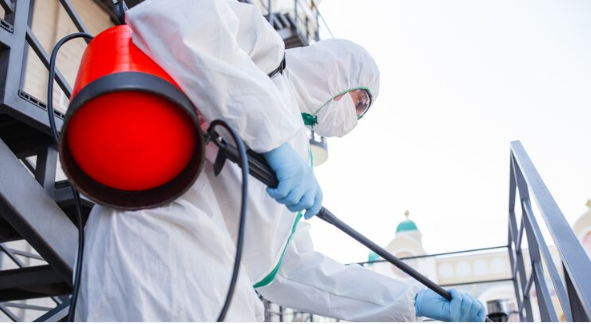We all know cleaning is important. It keeps our homes looking fresh and removes visible dirt. But did you know some cleaning habits, while seemingly harmless, could actually be making you sick? By understanding these common mistakes and making small adjustments to your routine, you can ensure your cleaning efforts are truly promoting a healthy environment.
-
Not Cleaning Before Disinfecting
Think of cleaning as picking up toys before you vacuum. Disinfecting kills germs, but it won’t work effectively if the surface is covered in dirt, grease, or grime. These substances can shield germs from the disinfectant, rendering it useless. Always start by wiping down surfaces with soap and water or an all-purpose cleaner to remove debris before using a disinfectant.
-
Using the Same Cleaning Cloth Everywhere
Sponges and cloths can become breeding grounds for bacteria, especially if used in multiple areas of the house. Imagine using the same dishcloth to wipe your counters and then clean your bathroom sink – not exactly sanitary! Dedicate different cloths or sponges for specific areas, like the kitchen, bathroom, and general surfaces. Microfiber cloths are a good choice as they trap dust and germs effectively. Remember to wash your clothes and sponges regularly, ideally in hot water (around 60°C) or with a bleach solution to kill bacteria.
-
Forgetting Hidden Germ Hotspots
We often focus on cleaning visible surfaces like countertops and floors, but there are many germ hotspots we tend to overlook. Light switches, doorknobs, cabinet handles, and remote controls are frequently touched by everyone in the household, making them prime locations for bacteria and viruses to accumulate. Include these high-touch areas in your regular cleaning routine, and don’t forget to wipe down your phone screen regularly too!
-
Not Following Dilution Instructions
Cleaning products are often concentrated and need to be diluted with water according to the manufacturer’s instructions. Using them full strength can be ineffective and even harmful. Overly strong cleaning solutions can leave behind residues that irritate skin and eyes. Additionally, using too much bleach can damage surfaces and release harmful fumes. Always dilute cleaners as directed, and remember – a little goes a long way!
-
Mixing Cleaning Products
It might seem logical to combine cleaning products to create a super cleaning concoction, but resist the urge! Mixing certain chemicals can lead to dangerous reactions. Bleach, for example, should never be mixed with ammonia, as it creates toxic gas. Always use cleaning products as intended and on the surfaces they’re designed for. If you’re unsure about using a particular product, consult the label or the manufacturer.

-
Neglecting Air Ducts and Vents
Out of sight, out of mind, right? Unfortunately, this mentality doesn’t apply to air ducts and vents. These hidden pathways can accumulate dust, pet dander, and mold spores, which get circulated throughout your home every time you use your heating or air conditioning system. Schedule regular cleaning of your air ducts by a professional, ideally every 2-3 years. Additionally, dust vents and air filters regularly to prevent allergens from circulating in your home.
-
Not Cleaning Throw Rugs and Mats
Doormats and throw rugs trap dirt, dust, and allergens brought in from outside. These should be shaken out regularly and washed frequently according to the care label. For carpeted floor mats, vacuuming with the hose attachment can help remove embedded dirt.
-
Forgetting Soft Furnishings
Couches, pillows, and curtains can harbor dust mites, pet dander, and allergens. Regularly vacuum upholstery and furniture, paying close attention to crevices and seams. Wash pillows and throws according to the care label, and consider using allergen-proof covers for mattresses and pillows, especially if you suffer from allergies.
-
Not Emptying the Vacuum Cleaner Regularly
A full vacuum cleaner bag or dustbin loses its suction power and can even recirculate dust back into the air. Make it a habit to empty the vacuum cleaner after each use, and change the bag or filter according to the manufacturer’s recommendations.
-
Using Harsh Chemical Cleaners
Many commercial cleaning products contain harsh chemicals that can irritate skin, eyes, and respiratory systems. Consider using natural cleaning alternatives whenever possible. Vinegar, baking soda, and lemon juice can be effective for many cleaning tasks. There are also many eco-friendly cleaning products available that are just as effective as traditional options but without the harsh chemicals.
Elixonn Healthcare Cleaning Services
Elixonn Healthcare Ltd offers professional cleaning services that keep your living space free from germs. We offer house cleaning, office cleaning and outdoor cleaning services. Contact us today.
Conclusion
By avoiding these common mistakes and making small adjustments to your cleaning routine, you can create a healthier and safer environment for yourself and your family. Remember, cleaning is about more than just appearances – it’s about creating a truly healthy home.



